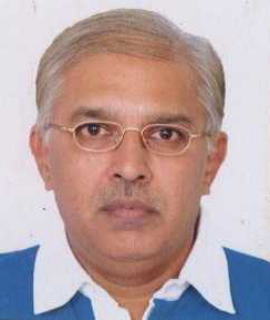Aquatic and Marine microbiology
The study of bacteria in aquatic systems, such as fresh or salt water systems, is known as aquatic microbiology. Microscopic plants, animals, bacteria, viruses, and fungus, as well as their behaviour and interactions with other creatures in the aquatic environment, are covered. Aquatic Microbiology is dedicated to the advancement of microbial research in aqueous environments, with an emphasis on freshwater, estuarine, and oceanic ecosystems. Aquatic microbes have a variety of roles in ecosystems and are essential to the biogeochemical cycles on the planet. Aquatic microorganisms are also genetically, physiologically, and environmentally varied, with a wide range of evolutionary, adaptive, and physiological responses.
Microorganisms (bacteria, archaea, viruses, and microbial eukaryotes) in the marine environment, including their biodiversity, ecology, and biogeochemistry, are studied in marine microbiology. The application of metagenomics in revealing the number and composition of marine microbial ecosystems has been crucial. Microorganisms are thought to make up between 70% to 90% of the biomass in the water. They make up the marine microbiome when combined. This microbiome has evolved different life styles and adaptations over billions of years, and it now participates in the global cycling of practically all chemical elements. Microorganisms, which function as decomposers, are essential for nutrient recycling in ecosystems. They're also responsible for almost all photosynthesis in the ocean, as well as carbon, nitrogen, phosphorus, and other nutrients and trace elements cycling.
- Cultures or Mixed Populations
- Interactions Amongst Marine Microorganisms
- Metagenomics
- Physiological, Genetic, Genomic, Transcriptomic and Proteomic Aspects

Xingmin Sun
University of South Florida, United States
Bing Chen
Memorial University, Canada
Shailesh R Dave
Xavier’s Research Foundation, LCRD, India
Michaela Hostetler
The Ohio State University, United States


Title : Degradation of chitin using chitinase produced from molecular identified bacteria
Afra Mohammed Baghdadi, Jeddah University, Saudi Arabia
Title : Antibiotic resistance of clostridioides difficile
Xingmin Sun, University of South Florida, United States
Title : Metagenomics of the saline habitats of coastal Gujarat, India: Emerging potential for biocatalysis and bioremediation
P. Satya Singh, Saurashtra University, India
Title : Molecular Response Analysis for Lentinus squarrosulus AF5 under Azo dyes Stress: An Integrated Proteome Dynamics and Putative Metabolic Cascade
Anshu Mathur, Indian Institute of Technology Roorkee, India
Title : The necessity for innovative biotechnological solutions for the treatment of dying and textile effluents and their prose and cones
Shailesh R Dave, Xavier’s Research Foundation, LCRD, India
Title : In search of obesity-linked signature gut microbial features and species contributors of reproducible pathway shifts
Deep Chanda, National Institute of Technology, India